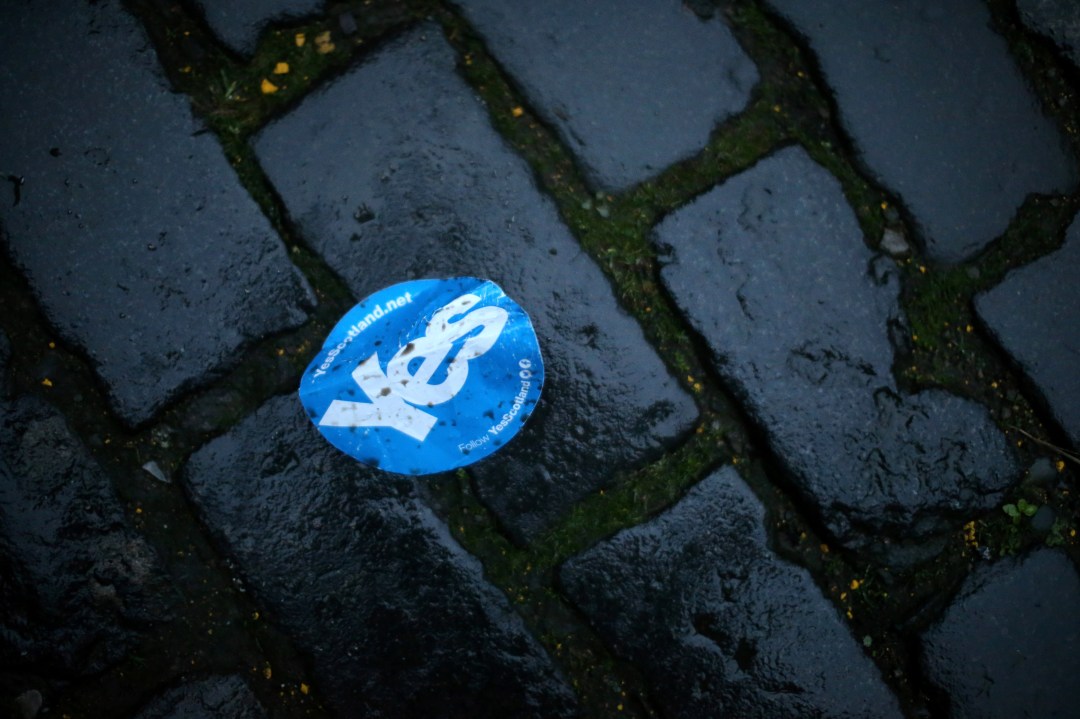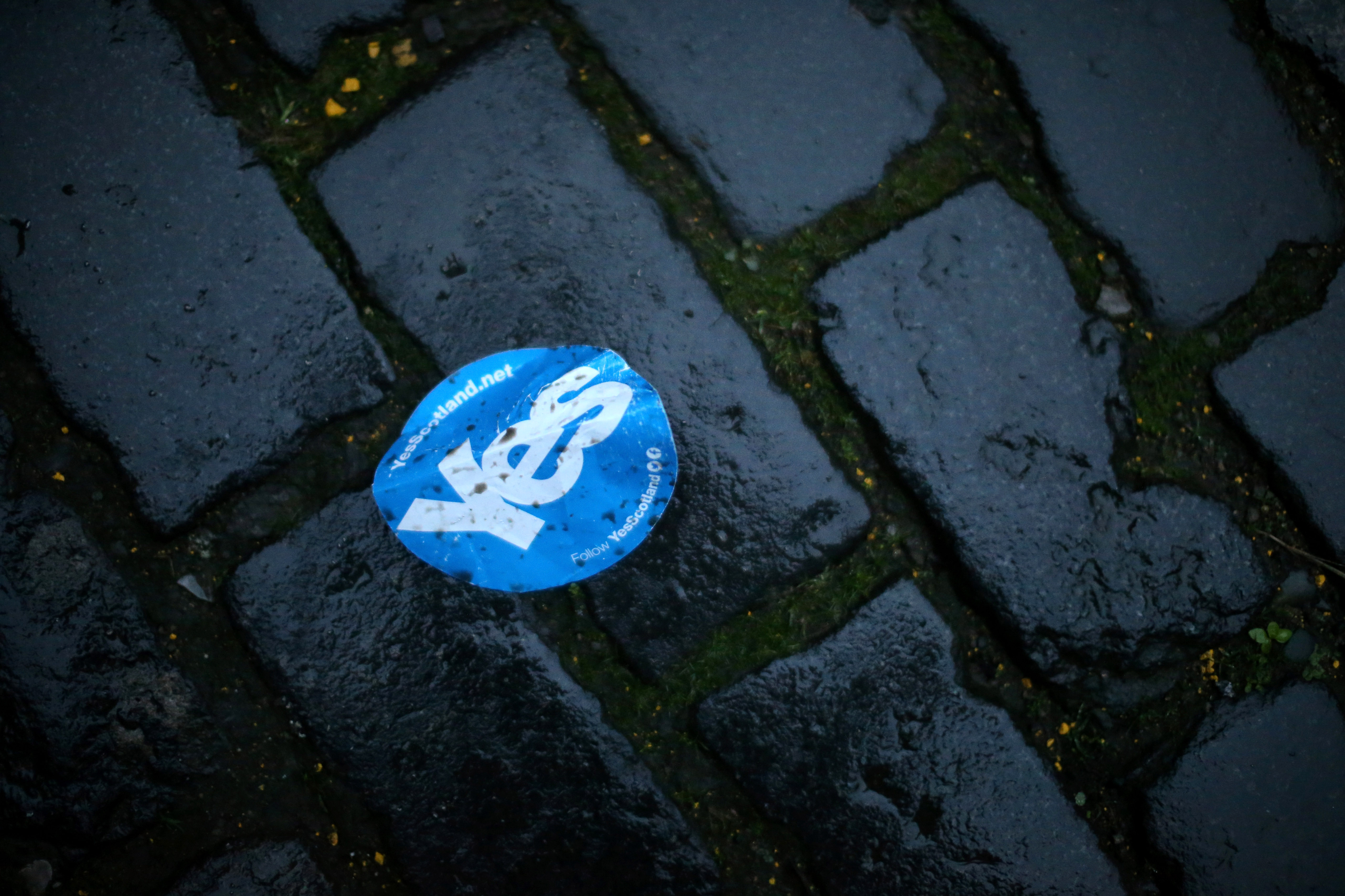Relief, actually. Not joy. A battle won is better than a battle lost but still an exhausting, bloody, business. There is no need to bayonet the wounded. It would, in any case, be grotesque to do so. Scotland voted and made, in my view, the right choice. The prudent choice. The bigger-hearted choice.
But 45 per cent of my countrymen disagree. That’s something to be respected too. Moreover a good number of No voters did so reluctantly and not because they were necessarily persuaded by the case for Union but because they felt the Yes campaign had not proved its own argument beyond a reasonable doubt. That’s an important qualification. A reminder that the Union is a contract and support for it remains provisional.
To put it another way, a 55-45 victory is both a handsome margin – wider than the 53-47 I had guessed – and a remarkable repudiation of the Union. It is clear enough to be decisive; close enough to demand modesty in victory. At 9pm yesterday the air was thick with nationalist expectation and Unionist anxiety. All day we’d heard stories of friends and relatives and friends of friends making last-minute conversions to Yes. Plenty of Unionists, if they are honest with their recollections, will admit to thinking, then, that the cause was lost.
That’s the danger of anecdote, of course. We extrapolate from our own experiences and think what we hear is likely to be more typical than actually proves the case. Even so, there was every reason to be concerned; every reason to wonder if Scots might say to hell with it all and leap into the unknown.
In the end we peered over the edge and thought, jings, that’s a long way down. Clackmannan hammered Yes and Inverclyde killed them. The game was up very early and the rest of the evening had an oddly anti-climactic air. All this sound and fury, all this fervent passion, all this frenetic activity ended with a whimper, not a revolution.
That passion should be respected, however. It was not a fleeting thing; it will not evaporate. The most heartening thing, for me, in the campaign’s final days was the rediscovery that, actually, Britain was something – a place and an idea too – that was worth fighting for. The country – countries, even – may need to change now but there was, at last and at least, an attempt to make a No vote an expression of something bigger than a question of accountancy. For that alone, I think Dan Snow and Tom Holland deserve our thanks. They helped give No votes something the worth of which could not be ascertained with a calculator.
I don’t claim that made all the difference but it made some difference, not least because it allowed – or reminded – No voters to vote for something, not just against the prospectus offered by the Scottish government and the Yes campaign. Scotland is a country but so is the United Kingdom.
And yet, inescapably, class and generational division is a large part of this story. The Union was saved, in the main, by wealthier and older Scots. The poor chose differently. That’s an uncomfortable fact for Unionists and one that requires attention. Plenty of Yes votes were cast in hope more than expectation; many others were votes predicated on the fear that voting No offered no prospect of personal or community improvement.
One lesson of this campaign is that the poor, so often marginalised, have a voice too and that they should be heard. This too, I think, should temper Unionist joy this morning. A sobering, timely, even necessary, reminder that the status quo does not float all boats. Too many of our people lack the means or opportunity to make the most of their lives; too much human capital and potential is still squandered.
In that respect the state of our Union is not strong today. Indeed, the referendum is a reminder, even a confirmation, of its weakness. There is much work to be done. That task starts now, not just in terms of a new constitutional settlement but in actually making the best use of the powers the Scottish parliament already enjoys.
So, yes, relief not joy. I have too much respect for my friends who voted Yes to revel in their disappointment today. Many of them have worked tirelessly for their vision of a better future; that demands some modesty in victory. How can I be cheered by their misery?
We press on, as Lincoln said, with malice toward none and with some measure of charity, and we might pause to reflect that it could all have been very different. The Yes campaign has done our nation – our countries – some service not least in causing us to consider the first principles of the society we wish to be. That is a kind of triumph, even if not one that’s measured by the final scorecard.
Life goes on. The nationalists, at least the longer-serving ones, have experienced plenty of defeats before. This one stings more than any other; to have come so close yet lost so conclusively will shatter hearts. They were not cheated, however, nor were their fellow-countrymen bribed or bullied to reject independence. If the No campaign made plenty of well-documented errors, so did the Yes campaign. They promised the earth and in doing so lost their native land. The suspicion their vision for Scotland was simply too good to be true was widely-felt and, in the end, persuasive.
Doubtless there will be some recrimination; doubtless there will be some cries of betrayal. How could it be otherwise in the aftermath of a great defeat at the end of a long campaign in which so much hope had been invested? But it is not the end of the song, merely the start of another tune.
Scotland was a good place before the polls opened and remains a fine place now. The task, in which we are all shareholders, is to make it a still better one. That’s a heavy responsibility to be born by the victors and a hefty consolation for the vanquished. We beat on, Scotland, we beat on.








Comments